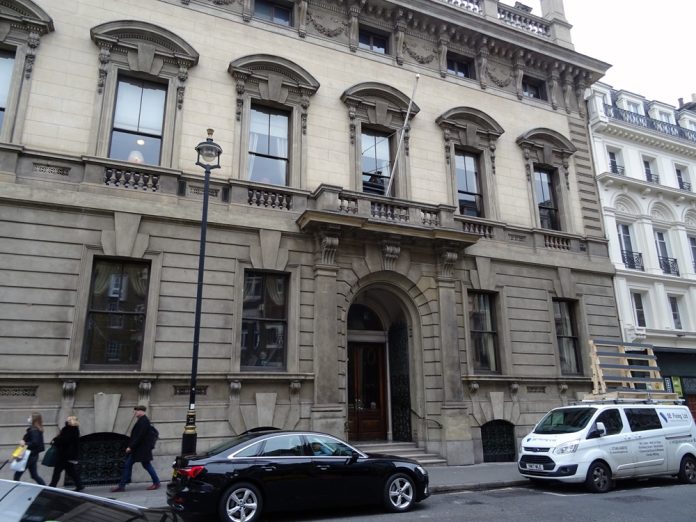Corinthia Ward, Socialist Party national committee
The elitist men-only Garrick Club has come under the spotlight after the Guardian newspaper released a list of prominent men who hold membership.
It is not the first time the ‘gentlemen’s club’ has come under fire for its refusal to admit women. However – since the #MeToo movement, protests around Sarah Everard and other murdered women, as well as the sexist scandals surrounding the Met and other police forces – the anger against an influential all-men club has been posed more sharply.
Leading men in the judiciary and courts, including a supreme court judge, have been amongst the names leaked. The Bar Council, the organisation that represents 18,000 barristers in England and Wales, warned that exclusive members’ clubs “create the potential for unfair advantage” for lawyers seeking to become judges, as well as adding to the reinforcement of gender-pay disparity within the profession. There are at least 150 barristers in the club while, at the same time, women are more than twice as likely as men to have suffered bullying or harassment at work in the industry.
There is also the question of how the biases of these men may affect the outcome of cases. When a judge is willing to attend a club which refuses the entry of women, are they unbiased when deciding the outcome of domestic abuse appeals cases? One senior woman barrister who raised this point via social media is now under disciplinary proceedings. And the initial judge appointed to the case was also a member of the Garrick Club themself!
The club’s approximately 1,500 membership is not just limited to the courts but includes members of the House of Lords, MPs, and heads of influential law firms, private equity companies and other businessmen, academics, actors, rock stars and journalists. Even the heads of MI6 and the civil service, who, since being named, have both cancelled their memberships.
The main solution on offer from the establishment is that the club needs to start admitting women. Seven women have been nominated by a group of members at the club who hope the ruling committee will now change the rules. One of the names suggested is ex-Tory MP Amber Rudd. Additionally, back in 2021, Cherie Blair backed a campaign to have women admitted.
Elitism
The sexism inherent in the Garrick Club is only one side of the coin – the other is the elitism and class composition of the people who make up the membership. The majority of members went from boarding schools to Oxbridge. These are senior figures who run our country, influence policies and direct industries which affect the lives of all ordinary workers. If any women are admitted they would undoubtedly be of the same class, people such as Amber Rudd and Cherie Blair, who are not representative of working-class women across the country.
Attacks on services mean women are more economically vulnerable and feel the brunt of austerity more acutely, as they are more likely to need access to services, such as housing and domestic abuse services.
The inclusion of women into the Garrick Club may help a small number of women enter jobs in senior positions. But it will not challenge sexism on a broader scale that women experience from lower wages, precarious jobs or the uneven caring/cleaning responsibilities of the home. Capitalist women, just like their male peers, will continue to promote policies which benefit their class and drive a wedge between working-class men and women.
Elite clubs like the Garrick Club are networking, shoulder-rubbing venues – with meetings that potentially affect millions happening behind closed doors.
Sexist institutions like these private clubs and the role they play in society need to be challenged, by fighting for the interests of the working class and wider society. The Socialist Party fights for the building of a mass workers’ party with a programme of nationalising the commanding heights of the economy – including rail, mail, energy and the banks – under workers’ democratic control and management. Rather than decisions being made by a handful of individuals appointed by their friends, workers could have democratic control, with leaders democratically elected, subject to recall and with no material privileges.
British society is seeing a growing chasm between the rich and poor – only socialist policies can break with the minority hold of the capitalists. Policies such as funding quality public services, free education and childcare and the building of council homes would help both women and the working class to escape poverty and achieve things like career progression if they so choose.
This is why Socialist Party members will be standing in the upcoming elections, so working-class women and men have a voice at the ballot box which breaks with the interests of the 1%.








